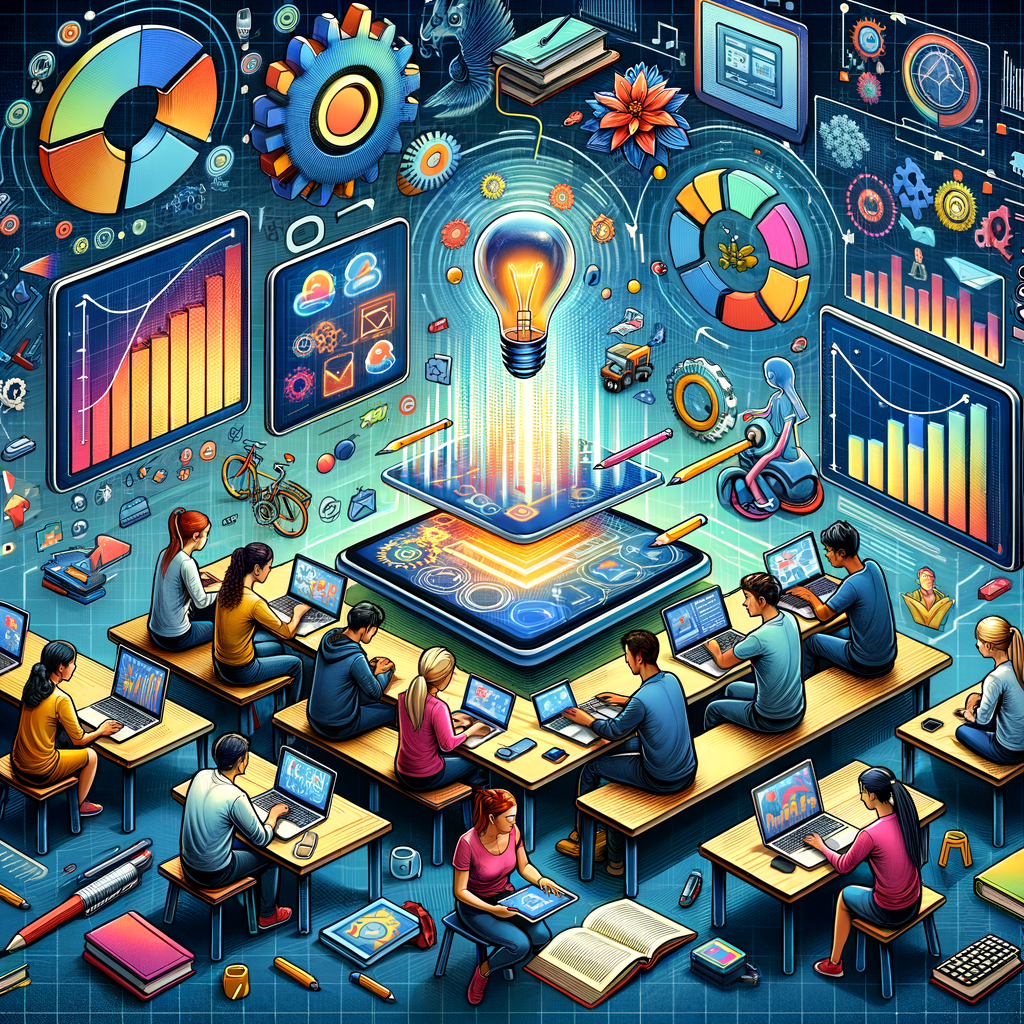Education is on the brink of a technological transformation! Adaptive learning platforms are redefining how we approach personalized learning, leveraging cutting-edge artificial intelligence to create dynamic, responsive educational experiences. Imagine a learning environment that understands your unique needs, adjusts in real-time, and maximizes your potential – that’s the promise of adaptive learning technology. Recent studies show that personalized learning can increase student engagement by up to 60%, making these platforms not just innovative, but potentially game-changing.
Understanding Adaptive Learning Platforms
Definition and Core Technological Principles
Adaptive learning platforms represent a revolutionary approach to personalized education, leveraging sophisticated technological frameworks to dynamically adjust learning experiences. By continuously analyzing individual student performance, these platforms create unique educational pathways that respond in real-time to each learner’s strengths and challenges.
How AI Powers Personalized Learning Experiences
Artificial intelligence serves as the backbone of adaptive learning, enabling systems to comprehend complex learning patterns. For instance, imagine a mathematics platform that instantly recognizes a student struggling with algebraic equations and automatically provides supplementary micro-lessons or alternative explanation strategies.
Differences from Traditional Educational Models
Unlike traditional one-size-fits-all educational approaches, adaptive learning platforms treat each student as a unique learner. Where conventional classrooms might leave some students behind or bore advanced learners, these intelligent systems dynamically calibrate difficulty and content complexity.
Key Technologies Driving Adaptive Learning
Machine Learning Algorithms
Sophisticated algorithms continuously analyze learning data, creating predictive models that anticipate student performance and recommend targeted interventions. These algorithms can detect nuanced learning patterns that human instructors might miss.
Data Analytics and Predictive Modeling
Advanced analytics transform raw learning data into actionable insights, allowing educators to understand precise student learning trajectories and potential intervention points.
Real-Time Performance Tracking and Assessment
Constant performance monitoring enables immediate feedback, helping students understand their progress and areas requiring additional focus moments after completing learning modules.
Benefits for Students and Educators
Personalized Learning Pathways
Students experience customized learning journeys that match their individual cognitive processing speeds and learning styles, dramatically improving knowledge retention and engagement.
Increased Student Engagement and Motivation
By presenting content in digestible, personally relevant formats, adaptive platforms transform learning from a potential chore into an interactive, motivating experience.
Targeted Intervention and Support Mechanisms
Educators receive granular insights into student performance, allowing preemptive support for learners at risk of falling behind or requiring additional challenges.
Implementation Challenges and Solutions
Technical Infrastructure Requirements
Successful adaptive learning platforms demand robust technological ecosystems, including high-performance cloud computing, sophisticated machine learning models, and secure data management systems.
Data Privacy and Ethical Considerations
Rigorous protocols must protect student data while maintaining transparency about how AI-driven systems collect and utilize personal learning information.
Training Educators to Leverage Adaptive Technologies
Comprehensive professional development programs are crucial to help educators effectively integrate and interpret adaptive learning insights into their teaching strategies.
Future of Adaptive Learning
Emerging Trends in Educational Technology
Increasingly sophisticated AI models promise even more nuanced personalization, potentially revolutionizing how we conceptualize individualized education.
Potential Impact on Global Education Systems
Adaptive learning technologies could help democratize high-quality education, providing personalized learning experiences across diverse geographical and socioeconomic contexts.
Integration with Emerging Technologies like VR and AR
Virtual and augmented reality promise to further enhance adaptive learning, creating immersive, interactive educational environments that respond dynamically to individual learner interactions.
Conclusion
Adaptive learning platforms represent more than just a technological innovation – they’re a paradigm shift in educational methodology. By embracing these intelligent systems, we can create more inclusive, effective, and personalized learning experiences that adapt to individual student needs. The future of education is not one-size-fits-all, but customized, intelligent, and empowering!

